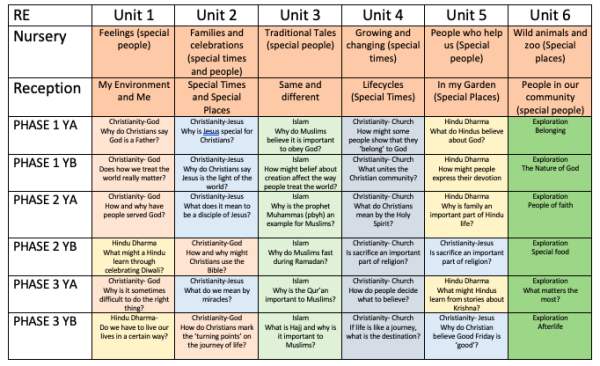R.E. and World Views
Why teach Religious Education and World Views?
The teaching of Religious Education and World Views provokes challenging questions about meaning and purpose in life, beliefs about God, ultimate reality, issues of right and wrong and what it means to be human.
Religious Education enables pupils to explore their own beliefs (whether they are religious or not), ideas, feelings, experiences and values in the light of what they learn. It encourages empathy and respect for the rights of others to hold different beliefs, values and ideas and enables pupils to develop their own sense of identity and belonging.
It enables pupils to have a nuanced and informed understanding of political, social and moral issues that they will need to face as they grow up in an increasingly globalised world. As such Religious Education is central to good local, national and global citizenship. It prepares pupils for life in modern Britain.
How we teach Religious Education and World Views
In RE children learn about religious and non-religious worldviews in order to discover, explore and consider different answers to these questions. They learn to interpret, analyse, evaluate and critically respond to the claims that religious and non-religious worldviews make and learn to express their insights and to agree or disagree respectfully.
What your child will learn
- The diversity of religion on a local, national and global level
- How religion can be defined and what is meant by the term “religious and non-religious worldviews”
- Develop and use skills that enable critical thinking and enquiry in relation to the material they study
- Reflect on their own thoughts, feelings, experiences, ideas, values and beliefs
- Develop a positive attitude towards other people, respecting their right to hold different beliefs from their own
RE Long Term plan- 2 year cycle
23/24- Year A
24/25- Year B

